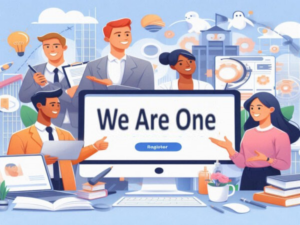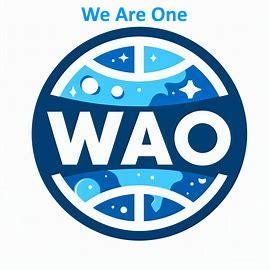Liberal Socialism: Freedom and Justice – Without Coercion, Without Revolution
💡 A Thought Experiment – Not a Manifesto
This is not the work of a political scientist, but the idea of a concerned citizen trying to reconcile freedom and justice in a world that often forces us to choose between them. It’s a starting point for discussion, not a finished theory.
If you’re an expert in political theory, economics, or social philosophy, we’d love your input. What’s missing? What could be improved? Where are the blind spots? This is a living document—and we’re counting on your knowledge and critique to make it better.
Let’s refine this together. 🌱✊
🌿 Rethinking Socialism: Freedom and Solidarity
WeAreOne stands for “liberal socialism”—a societal model that does not see individual freedom and social justice as opposites, but as two sides of the same coin. No revolution, no collectivization, no coercion. Instead: A market economy with social balance, personal responsibility with solidarity, private property with a commitment to the common good.
Our approach is a synthesis of the best of two traditions:
- The freedom of liberalism—with respect for self-responsibility, diversity, and private initiative.
- The justice of socialism—with a focus on equal opportunity, fair participation, and cooperation.
This is not a contradiction, but an overcoming false opposites.
📚 Historical Roots: Where the Idea Comes From
Our concept builds on three related but distinct traditions—and goes beyond them:
1. 🔹 Social Liberalism: Liberalism with a Social Conscience
- Emerged in the 19th/20th centuries as an attempt to combine classical liberty with social responsibility.
- Key thinkers: John Stuart Mill (later phase), T. H. Green, or in Germany, the left wing of the FDP in the 1970s (e.g., demands for co-determination and redistribution).
- Core idea: Market economy yes—but with social corrections to ensure equal opportunity and the common good.
- Problem: Often remained half-measures—social liberalism shied away from profound structural changes.
2. 🔹 Democratic Socialism: Socialism with a Liberal Spirit
- Defining moment: The SPD after 1959 (Godesberg Program), which turned away from Marxism and embraced reform over revolution.
- Features:
- No abolition of private property, but strong social safety nets.
- Democracy and the rule of law as non-negotiable.
- Reformist path: Change through democratic politics, not upheaval.
- Weakness: Often too focused on the state as problem-solver—and too little on societal self-organization.
3. 🔹 Liberal Socialism: The Rare but Logical Synthesis
The term appears in a few thinkers who sought to reconcile socialism and liberalism:
- John Stuart Mill (in his later works: freedom and social justice as inseparable).
- R. H. Tawney (British social philosopher: property yes, but bound by social duties).
- Norberto Bobbio (Italian theorist: “socialism without dictatorship,” emphasizing pluralism and individual rights).
- Common denominator: Freedom is the prerequisite for true equality—and vice versa.
Why is the term “liberal socialism” so rarely used? Because “socialism” has historically been associated with nationalization, planned economies, or coercion. We redefine it:
“By liberal socialism, I mean a societal model that respects individual freedom and private property—but also demands social responsibility, fair participation, and solidarity.”
⚖️ Why “Liberal Socialism”? Our Reasoning
- 🔄 No Revolution, but Evolution
- We want no systemic overthrows, but step-by-step reforms that strengthen freedom and justice simultaneously.
- Example: Cooperative models that combine private property and democratic control.
- 🤝 Cooperation, Not Collectivism
- No forced collectivization, but voluntary cooperation—whether in businesses, housing projects, or digital platforms.
- Example WeAreOne: Our public limited company with registered shares shows how economic success and democratic participation can go hand in hand.
- 💡 Freedom Enables Justice—and Vice Versa
- True freedom only exists when everyone has equal opportunities.
- True justice only exists when individuals can act self-determined.
- 🌍 Common Good Without Paternalism
- No “nanny state” that regulates everything—but structures that reward solidarity.
- Example: Unconditional basic income (freedom) + strong public services (security).
🎯 Our Liberal Socialism in Practice
What does this look like in concrete terms?
Here are our principles:
Liberal+Socialist= Liberal Socialism at WeAreOne
| Liberal | Socialist | = Liberal Socialism at WeAreOne |
|---|---|---|
| Private property | But: Socially bound | Cooperative models, employee ownership |
| Market economy | But: With fair rules | Social market economy 2.0 (e.g., common good economy) |
| Individual freedom | But: Solidarity as duty | Voluntary cooperatives with social impact |
| Personal responsibility | But: Security for all | Unconditional basic income + strong social systems |
| Competition | But: Cooperative | Platform cooperatives instead of monopolies |
Our motto: “Socialism without coercion and without revolution—but with decency, fairness, and solidarity.”
🚀 How We Plan to Implement This
- 🏗️ Democratizing the Economy—Without Expropriation
- Worker participation in companies (e.g., through our public limited company with registered shares).
- Promoting cooperatives and common good-oriented businesses.
- 📊 Embedding Markets Socially
- Taxes on wealth and inheritance to finance equal opportunity.
- Public goods (education, healthcare, housing) accessible to all.
- 🤲 Strengthening Community—Voluntarily and Decentrally
- Local self-governance (e.g., in housing projects or energy cooperatives).
- Digital platforms as commons (not controlled by corporations).
- 🌱 Ecological Responsibility
- Market economy within planetary boundaries—e.g., through CO₂ taxes, whose revenues are returned to citizens.
🔮 Why This Is Urgently Needed Now
The crises of our time—climate change, social inequality, democratic erosion—demand new answers:
- Neoliberalism brought freedom without justice.
- State socialism attempted justice without freedom.
- Our liberal socialism says: Both are possible—if we do it right.
The question is not “freedom or justice”—but how we bring them together.
Appendix: Our Relationship with Capitalism
We do not call to abolish capitalism—we want to steer, regulate, and harness its strengths while curbing its exploitative tendencies.
Capitalism is not just an external system to be dismantled—it is also a human drive: the desire for improvement, profit, and growth. We do not seek to suppress this energy but to channel it in ways that benefit everyone, not just a privileged few.
Our goal is a tamed, socially embedded capitalism:
- Yes to innovation and competition—but with fair rules that prevent monopolies and ensure equal opportunity.
- Yes to private property—but with social responsibility that prevents exploitation and environmental destruction.
- Yes to entrepreneurial freedom—but with democratic participation that ensures profits do not come at the community’s expense.
We are not striving for utopia, but for a pragmatic alternative—a capitalism that serves rather than exploits, that enables rather than excludes.
💬 Join the Discussion: What’s Your Vision of Liberal Socialism and a restrained capitalism?
Our concept is not a dogma, but an invitation for debate. What’s missing? What would your model look like?
Register if you want to actively and constructively participate in the project!
As a verified member, you can:
✅ Reformulate pages like this in your own words,
✅ Publish them on swarmi.org, and
✅ Open them for discussion.
Together, we’ll refine the best versions of our ideas over time.
📄 Read our full position paper (later): Click Here
WeAreOne—Because freedom and solidarity don’t have to be opposites. 🌿✊
Appendix: Common Ground and Differences with the Fourth International
In many respects, our vision of liberal socialism aligns with the analyses and critiques of capitalism put forward by the International Committee of the Fourth International (ICFI), as represented on their website wsws.org. Their sharp critique of inequality, exploitation, and the failures of capitalism resonates with many of our concerns.
However, there is a fundamental difference: We do not share their goal of abolishing capitalism. Instead, we advocate for regulating and reforming it to serve the common good. While the ICFI often employs radical, communist rhetoric that can alienate potential allies, we believe in a more pragmatic, inclusive approach—one that focuses on collaboration rather than confrontation.
That said, we welcome members of the ICFI and similar groups to engage with us. Many of their analyses are insightful, and we hope that beyond terminology, there can be common ground for cooperation. If the rhetoric shifts from “revolution” to “reform and solidarity”, we might find that our goals are closer than they seem.
We find the ICFI particularly interesting because they are already well-networked internationally and have a strong presence in many countries. This makes them a potential ally in the global struggle for social justice and economic reform.
For those interested in learning more about the ICFI, we recommend the German Wikipedia page on the International Committee of the Fourth International. We intentionally link to the German page because the English Wikipedia page lacks detailed information. If German is not your language, you might want to use a translation tool to access the content.





